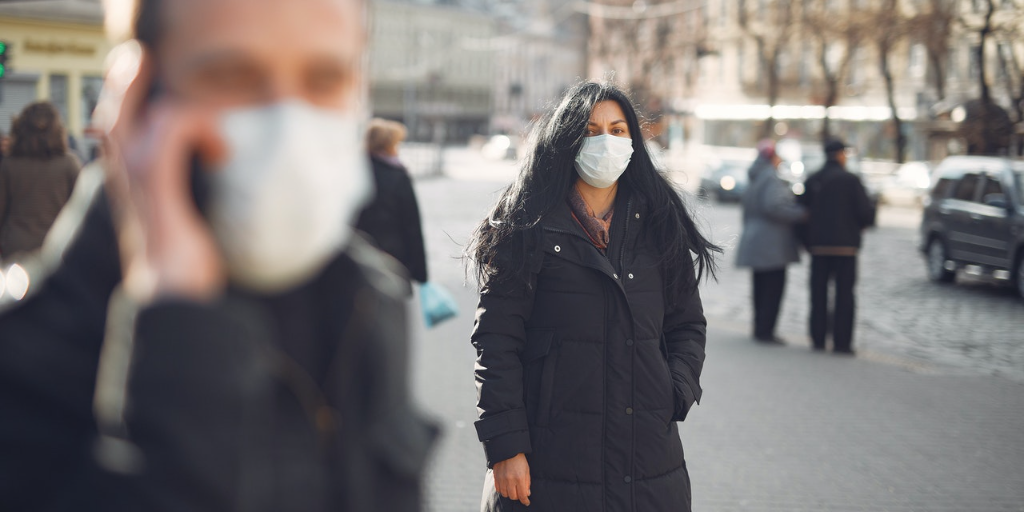Déjà vu in Europe: Will this round of lockdowns be any different?
Lesson summary
Hi there, thanks for joining us for another Plain English lesson. I’m Jeff; JR is the producer; and this full lesson can be found at PlainEnglish.com/310.
Coming up today: Europe goes back into lockdown, as most countries scramble to impose restrictions as coronavirus cases spike. Will it be any easier this time around? The expression we review is “balancing act.” And we have a quote of the week.
New lockdowns in Europe
The cafés in Paris, the beaches in Spain, the biergartens in Germany: they were buzzing with life just weeks ago as Europe appeared to have turned a corner. People were learning to live with the coronavirus and were making social distancing a part of their lives. Politicians confidently declared that, come what may, there would not be a second round of strict lockdowns like the continent experienced in March and April. This was the new normal, and Europeans were learning to live with it. Europe’s low infection rate seemed to validate its sensible contact tracing programs and its cautious, well-coordinated reopening plans. The continent’s generous health care system was working. A vaccine was in the future. The end was near.
What a distant memory that seems now. France, Germany, Spain, Austria, Portugal, Britain and others all began rolling back their reopening plans. The French prime minster said, “No one can consider themselves safe from this.” The French president said, “We are submerged by the sudden acceleration of the virus.” An advisor to the British government said: “This outbreak is now running riot across all age groups.” Angela Merkel said this “winter will be long—four long, difficult months.”
Political leaders are trying to avoid repeating the mistake of the spring—namely, waiting too long to impose restrictions on movement. But at the same time, their constituents are restless, exhausted after seven months of restricted liberty and economic hardship.
Protests have broken out across Italy, with residents pushing back against lockdowns, curfews, and closures of bars and restaurants. In Rome, police used water canon to fight back against the protests, which they said were unauthorized. Spanish police clashed with protesters in Barcelona and surrounding towns in Catalonia.
Balance that against the alarming rise in the incidence of the disease. France, Germany, and Spain all reported higher numbers of cases, deaths, and hospitalizations than at any time since the worst of the first outbreak in the spring. The force with which the virus has returned took health and political leaders by surprise: what was a trickle of new cases during most of the summer started to increase in September and then sharply accelerated in October.
Some European countries, including Poland and the Czech Republic, were spared the worst of the initial outbreak, but they are now dealing with high numbers of cases for the first time. Britain, which had lagged the continent in imposing restrictions, led the way this time, as Boris Johnson announced a four-week stay-at-home order that banned gatherings of friends and extended family even within private homes.
The world’s experience was that a total lockdown does slow the spread of the virus and contain hospitalizations, but that it comes at an extraordinary cost. In the initial outbreak, little was known, so political leaders were doing their best to react to the latest news as this unfamiliar disease was spreading through the population. They seized unprecedented powers to control the movements of the population: curfews, business closures, stay-at-home-orders. This time, the challenge will be to process what we’ve learned in recent months and design policies that control the virus’s impact while also limiting the economic and social damage.
It is a high-stakes balancing act. If policies are too lenient, a deadly disease could overwhelm hospitals and kill a large portion of the citizenry: the nightmare scenario everyone fears. But if policies are too strict, the damage will be felt differently: economic hardship, stunted education, mental health impacts, and political instability.
Individual countries design their own policies in Europe, but they are taking a similar shape. Overnight curfews limit the ability of people to be outside during nighttime hours—often defined as 10 pm or even earlier. Among the countries that have announced nighttime curfews are the Czech Republic, Portugal, Spain, and Austria. Ireland and France have imposed a limit on how far citizens can go from their houses—it’s 5 kilometers in Ireland and just one kilometer in France.
Many countries are closing businesses that rely on gatherings of people: bars and restaurants for indoor dining; entertainment venues like cinemas and theaters; and fitness centers, swimming pools, and dance studios. But many countries are trying to keep public services, libraries, factories, and even schools open.
Here we go again…
I almost can’t believe that this is happening again—and eerily similar to before. Europe overwhelmed, drastic lockdowns that seemed to come out of nowhere. Americans looking on thinking, “At least it’s not that bad here…” They closed restaurants for indoor dining here, just a few days before I recorded this lesson. I have an uneasy feeling that worse is to come.
Learn English the way it’s really spoken

